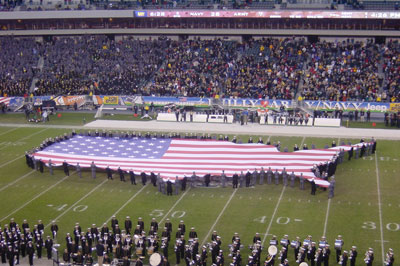All Nonfiction
- Bullying
- Books
- Academic
- Author Interviews
- Celebrity interviews
- College Articles
- College Essays
- Educator of the Year
- Heroes
- Interviews
- Memoir
- Personal Experience
- Sports
- Travel & Culture
All Opinions
- Bullying
- Current Events / Politics
- Discrimination
- Drugs / Alcohol / Smoking
- Entertainment / Celebrities
- Environment
- Love / Relationships
- Movies / Music / TV
- Pop Culture / Trends
- School / College
- Social Issues / Civics
- Spirituality / Religion
- Sports / Hobbies
All Hot Topics
- Bullying
- Community Service
- Environment
- Health
- Letters to the Editor
- Pride & Prejudice
- What Matters
- Back
Summer Guide
- Program Links
- Program Reviews
- Back
College Guide
- College Links
- College Reviews
- College Essays
- College Articles
- Back
My America
5AM, [AIRPORT]. As I trudge through the airplane aisle on a rainy Sunday morning at 5 am with bleary, half-open eyes, the screeches of two arguing people snap me awake. Three rows ahead, two men bicker loudly over who is the rightful occupant of seat 17C, shoving their tickets at each other as proof. My mom chuckles and nudges me in the stomach.
“Want to hear a joke?” she asks.
“Sure,” I say without enthusiasm.
“How do you get a Canadian to give up their seat on the plane?” Before I can guess, she tells me.
“You just ask them.”
What America means to me has always been in contrast with the place my parents came from, Canada. I’m a dual citizen of both nations, and though my parents moved to the U.S. over 25 years ago, their perspective and ideals remain fundamentally Canadian. They always encourage us to be polite regardless of the situation. When they took us to a Canadians game, we would root for our team, but not against the opposing team, even when Rangers fans booed and threw popcorn at us. Their critiques of American culture often seemed valid, but sometimes, the lines blurred . “Classic Americans being inconsiderate,” my dad would mutter after the woman in front of us at the grocery store would take the last of the premade tuna salad, when the reality was, there was only one scoop left, and she’d gotten there first. Blaming it on “Americans” gave my parents an easy--but not necessarily fair--outlet for their annoyances. These moments frustrated me, and as I angrily defended a total stranger for taking the last tuna, I’d feel a bit of my American self shine through.
On July 1st, Canadian independence day, I woke up in Bunk 8 at Camp Echo Lake and put on my old red shirt. At lineup that day, all 250 Canadian campers surrounded the flagpole dressed in jean shorts and something similar to my old red shirt while we all sang “O, Canada.” When the last refrain ended, we continued our normal camp routine packed with sports, swimming, and art. Yet when we stood at the flagpole just three days later for the 4th of July, everything was different. There were kids dressed in stars-and-stripes tank tops, girls with red, white, and blue knee-high socks, and boys wearing American flags as capes. One girl even had a bedazzled tutu--where did she buy that? I wondered. The entire camp stood up, put their hands over their hearts, and belted out “The Star-Spangled Banner” on the top of their lungs, their light-up hats bobbing as they swayed back and forth. Singing this patriotic, American song together united the camp and created a sense of family among us. I wondered if this idea of an American family extended beyond just Camp Echo Lake. Through reciting the pledge of allegiance at school and attending fourth of July parties with friends and family outside of camp, I grew to understand the power calling yourself an American holds. This patriotism excited me, and I felt the need to embrace this other side of myself that had been neglected for so long.
I came to realize that I could have the best of both worlds. While I grew up in a household that tended to criticize the United States, my exposure to proudly patriotic friends has helped me change my perception of what it means to be American, and ultimately helped me create my own definition of who I am as an American. Being a good American doesn’t mean agreeing with everything America does.
Rather than constantly scrutinize U.S. politics as my parents do, or blindly love a nation that is without a doubt flawed, I’ve learned to create a middle ground where I’m able to criticize my country and its past while also feeling an enormous pride for being able to call myself an American.

Similar Articles
JOIN THE DISCUSSION
This article has 0 comments.
